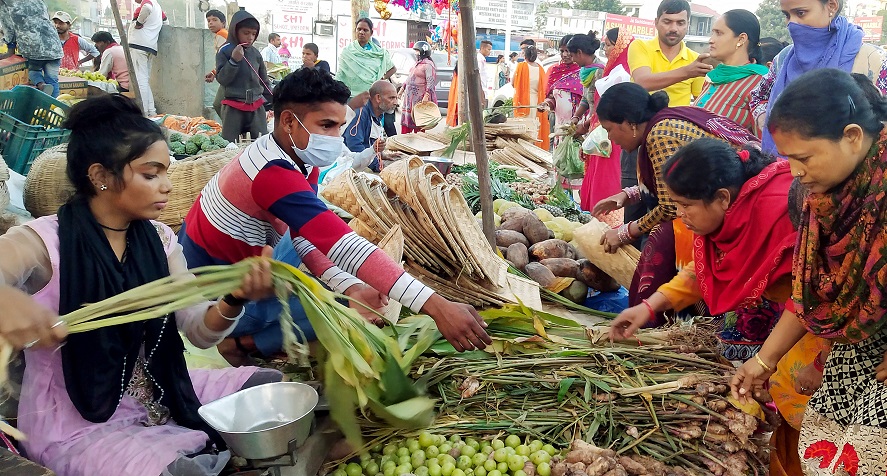Religious minorities should be identified on the basis of respective states. Hindu minorities in certain states are not receiving privileges and considerations just because they are Hindus.
Special rights for minorities in the Indian Constitution are always a talking point. Even though linguistic and religious minorities are eligible for special rights and privileges under the Constitution, linguistic minorities do not receive the deserved privileges. There arise circumstances where special rights awarded to a person or a community might cause hindrances to another person’s fundamental rights.
More often, religious minorities receive additional privileges compared to others. For instance, the widows belonging to the Christian and Muslim communities—who are minorities in Kerala—are awarded Rs 2 lakh by the government to build a home. While women belonging to a religious minority enjoy such privileges, those belonging to the majority community does not have such rights and advantages.
Students belonging to the minority communities are given special training programmes for civil service examinations. Whereas, economically backward students, even those who might be brilliant, do not receive such considerations because they belong to the majority community. Around 80% of Muslim minorities receive such privileges. According to the reports of 2011 on population, Kerala has 26.6% of Muslims and 21% of Christians. The State Economic Survey states that in the past ten years, a good number of new-borns in Kerala are Muslims. Around 85% of the medical colleges, engineering colleges, arts and science colleges, other professional colleges and primary and higher secondary schools in the private sector are led by the managements of Christian and Muslim organisations. When considering the students who clear medical, engineering and civil service preliminary exams, students belonging to the religious minorities are large in number compared to their population ratio. People belonging to such minority communities are right at the forefront in all domains like politics, bureaucracy, trade and industry. In spite of these facts, such mighty religious sections in Kerala are given minority rights.
While considering the situation in Jammu and Kashmir, among the 20,000 scholarships awarded by the Central government to the minority community, 713 out of 753 scholarships were awarded to the Muslims who form 71% of the population of the state. The Hindu community is the minority in Jammu and Kashmir and forms just 28.44% of the total population. Such scholarships or advantages are not given to the students of the Hindu community. Even though the population of the Hindu community in Punjab is just 38.4%, they do not receive any minority rights and privileges. The Hindu population in other states are Lakshadweep (2.8%), Mizoram (2.5%), Nagaland (8.75%), Meghalaya (11.53%), Arunachal Pradesh (28%) and Manipur (31.39%). These states do not receive any deserved minority rights and privileges. Whereas Muslims form 68.3% of the population in Jammu and Kashmir, 34.2% in Assam, 27.5% in West Bengal, 26.6% in Kerala, 19.3% in Uttar Pradesh and 18% in Bihar and get all the benefits of being a minority community.
The National Commission for Minorities was set up under the National Commission for Minorities Act, 1992 by Parliament. As per Section 2(C) of the NCM Act, people belonging to the Muslim, Christian, Sikh, Buddhist and Parsi religions are considered minorities. This notification was issued on 23 October 1993. This Act may be against the ideals of Articles 14, 15, 21, 29 and 30 in the Constitution. The right to health, education and security is a person’s fundamental right and the ideas put forward by the Constitution like equality, justice and secularism are infringed on through this Act.
The judgement passed in the case between the Kerala government and N.M. Thomas regarding minority rights aims to eliminate the existing discrimination. Whereas Article 30(1) of the Constitution gives special rights and privileges to all the minorities and it contradicts the entire idea of Section 30 of the Indian Constitution. The infringement of the rights and privileges of minorities of a state is a clear violation of Article 15(1) of the Constitution. The Supreme Court has stated regarding the case of the Kerala Educational Bill in 1958 that the minorities of each state should be determined by considering the states independently.
While determining the religious minorities, the regional population should be considered instead of the national population. The religious minorities should be identified on the basis of respective states, especially in a country like India which has a firm federal structure.
Regional politics in each Indian state has its own strong points. The state political parties will make an effort to influence any minority communities that form more than 20% in a state and their interests will be considered during the elections. Hence, giving minority rights to the communities that do not form a decent ratio will curb the interest of the actual deserving minorities.
Hindu minorities are not receiving privileges and considerations just because they are Hindus and communities that do not belong to the minorities are also considered as Hindus. They all might belong to different religious groups like Vaishnavas or Shaivas. Some might be the devotees of Mata Amritanandamayi or related to Sree Ramakrishna Mission. The leaders of Sree Ramakrishna Mission were even forced to deny that they were Hindus for the sake of receiving their minority rights. Therefore, the communities that are below 10% in a particular state should be identified as minorities of that state rather than determining them in a national milieu.
We have grown as a country, becoming a global superpower but discriminating against some and appeasing others for electoral benefits have become a fashion of sorts in India. While we give every opportunity to all the minorities to bring them up on the growth ladder, we shouldn’t discriminate and deny the Hindus who are regional minorities in many parts of the country. The time has come for the country to not just preach equality and secularism, but practise it in a true spirit.
P.K.D. Nambiar is a political analyst and marketing strategist.

